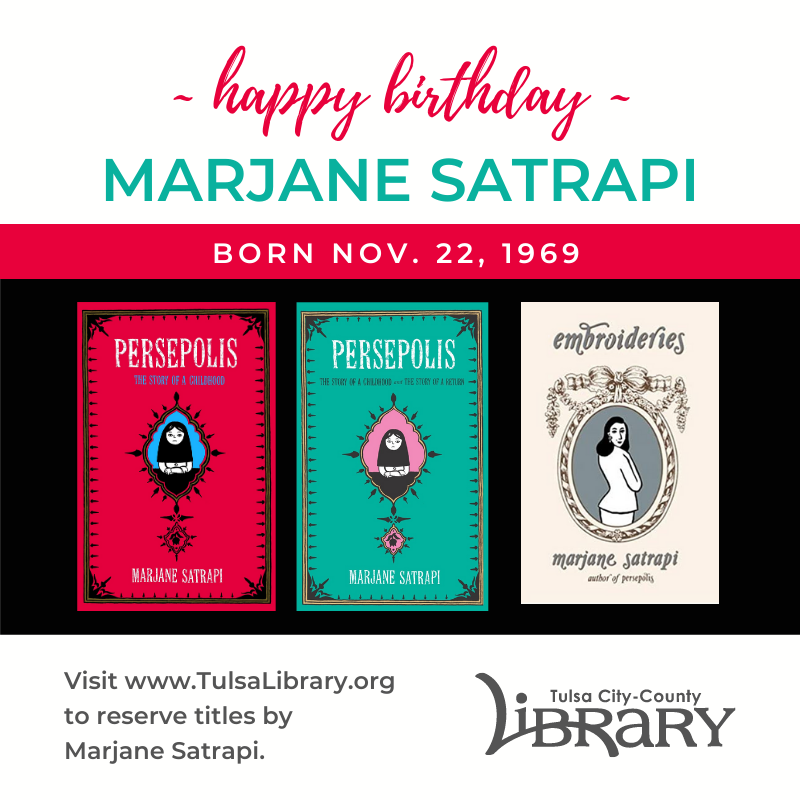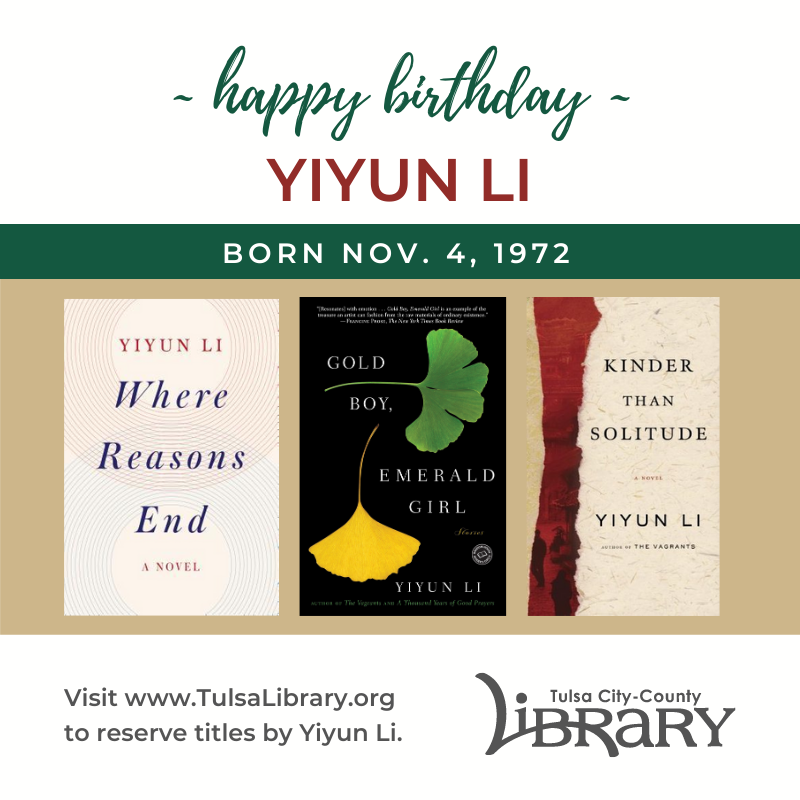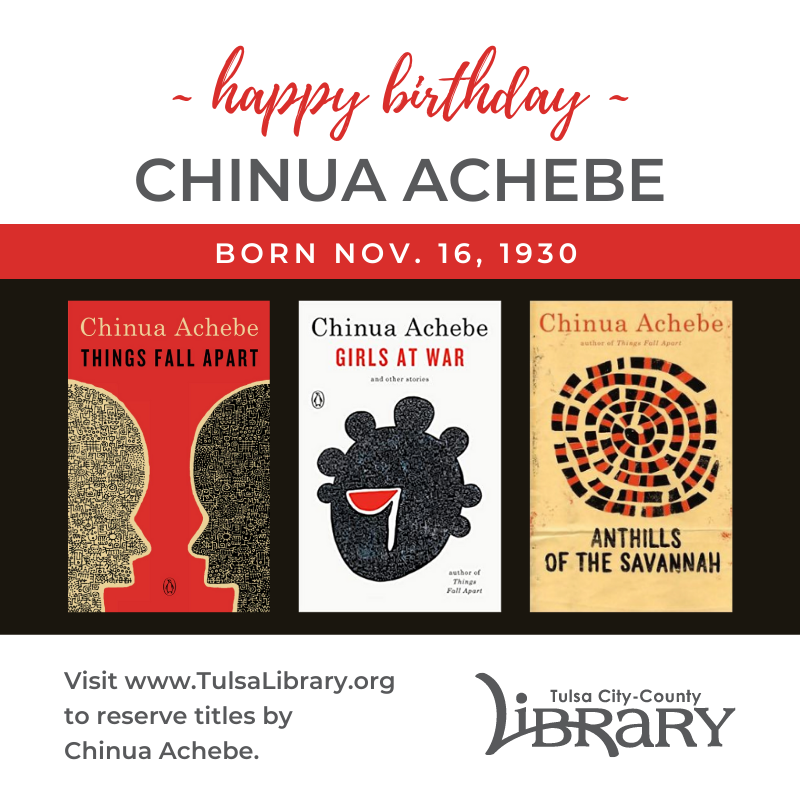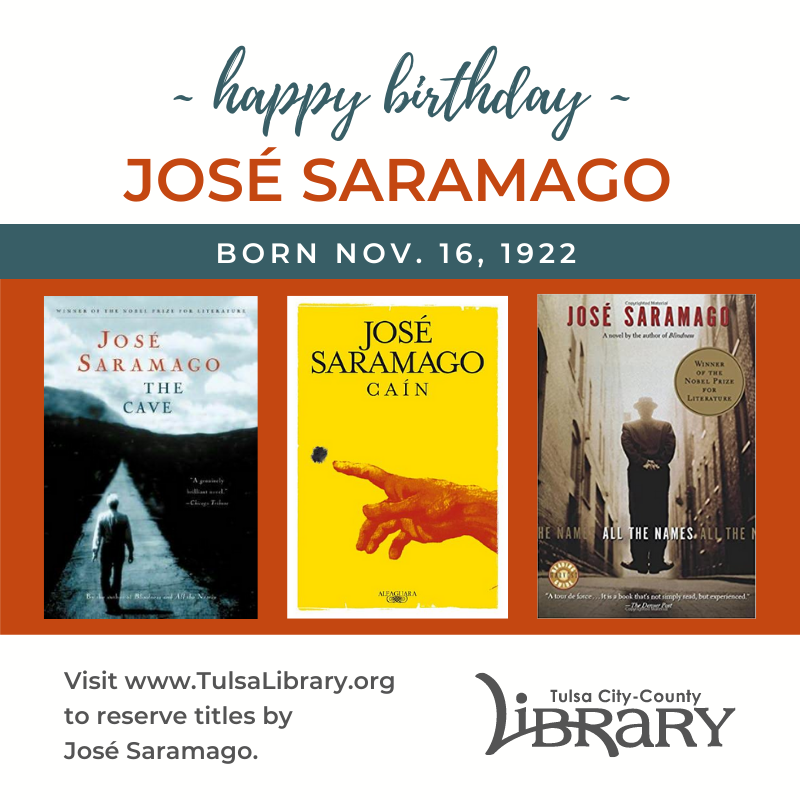Each month, we highlight birthdays of authors for you to discover through print and digital items as well as online biographies. In the post below, click on the author’s name to find titles by them in our catalog. Read a bit about each author, and find their full biography in the database listed! Find the database at www.tulsalibrary.org/databases, then log in with your last name and TCCL card number.
Need a TCCL card? Visit www.tulsalibrary.org/application.
Yiyun Li (born Nov, 4, 1972): "Yiyun Li was born in China in 1972 and came to the United States in 1996. She had only a limited command of English at that time and was enrolled in a doctoral program in immunology at the University of Iowa. Within a few years she realized that her true passion was writing. She left the program with a master's degree in 2000 and was admitted to the Iowa Writers' Workshop, where she earned an M.F.A. with an emphasis on creative nonfiction and fiction. Meanwhile, she had begun to publish essays and short stories. An essay she wrote about the massacre of students by Chinese forces in Tiananmen Square attracted some attention, and soon her work was appearing in prestigious publications such as the New Yorker, Paris Review, and Ploughshares. Random House editor Kate Medina was so favorably impressed with Li's fiction that she decided on the spot to publish the author's first collection of stories." From the Biography in Context database.
Colson Whitehead (born Nov. 6, 1969): "Colson Whitehead is one of the most prominent writers on the literary scene today. A regular on the New York Times best books list, Whitehead has been compared to such authors as Ralph Ellison, Toni Morrison, and Thomas Pynchon. For his literary accomplishments, Whitehead received numerous awards, including a coveted 'genius grant' from the MacArthur Foundation in 2002, recognizing him as one of the nation's top creative minds and signaling that he is a writer to watch. Moreover, two of his works, The Underground Railroad (2016) and The Nickel Boys (2019) earned Whitehead the Pulitzer Prize for Fiction." From the Biography in Context database.


Kazuo Ishiguro (born Nov. 8, 1954): "'When I write a novel perhaps some part of me wants to offer in a book an experience that you can't get easily sitting in front of a cinema screen or a television screen," novelist Kazuo Ishiguro told Linda Richards in an interview for January Magazine. 'For that reason, one of the strengths of novels, I think, over camera-based storytelling is that you are able to get right inside people's heads. You're able to explore people's inner worlds much more thoroughly and with much more subtlety.' In his first five novels, Japanese-born Ishiguro has explored this inner world of characters from his native Japan to his adopted homeland of England, and on to Europe and mainland China. In the process, Ishiguro has emerged as one of the foremost British writers of his generation, his novels commonly dealing with issues of memory, self-deception, and codes of etiquette, leading his characters to a reevaluation or realization about the relative success or failure of their lives." From the Biography in Context database.
Carlos Fuentes (born Nov. 11, 1928): "'The novelist takes it upon himself to reinvent in depth a world that must come alive again, for the future only exists if the past does also,' Mexican novelist Carlos Fuentes told the UNESCO Courier in 1992. That statement might serve as a credo for the complex, challenging works of this master of the modern Latin American novel, the first Mexican writer to appear on U.S. bestseller lists and one of the key figures in the ascent of Latin American fiction to international significance. Fuentes creates a fictional world showing Mexican society in the throes of intense change--yet at the same time in the grip of forces unleashed at many different points of its long history. Primary among those forces has been Mexico's troubled relationship with its colossal neighbor to the north." From the Biography in Context database.
Chinua Achebe (born Nov. 16, 1930): "Chinua Achebe, one of the most influential authors of the 20th century, is recognized as one of the first African novelists encountered across the diaspora. As a teacher, novelist, poet, essayist, and statesman, Achebe traversed the fields of art, culture, and ideas while exhibiting craftsmanship in various genres with quiet confidence and an unyielding desire to speak truth to power. He is both a celebrated African intellectual and a global citizen in the sense that his writings not only address peculiar political and cultural realities in Africa but also resonate around the world with his artistry and candid vision. His novels have been translated into more than 50 languages and his first novel, Things Fall Apart (1958), has surpassed 40 translations alone." From the African American Experience database.
José Saramago (born Nov. 16, 1922): "Nonconformist writer Jose Saramago, Portugal's best-known and most influential man of letters, in late 1998 became the first writer in Portuguese to earn the Nobel Prize for literature. Though he has published poetry, plays, short stories, travelogues, and more, he is most highly regarded for his novels, which, though varied in theme and subject matter, tend to explore values and priorities in modern society and also the plight of oppressed people. Saramago is known as the voice of the common person, a role he undertakes with newspaper and radio commentaries as well as in his fiction." From the Biography in Context database.







